US foreign adversaries have plans to defeat America 'from within': Rebekah Koffler
Former defense intel officer Rebekah Koffler on which Biden foreign policy failures RNC speakers need to address on day three of the convention.
As a former DIA intelligence officer specializing in Russian war-fighting strategy and Russian President Vladimir Putin’s mindset, I recently had the honor to brief one of the U.S. combatant commands on major security threats to our homeland. This briefing and my interaction with high-ranking officers and their staff prompted me to pen this piece.
As the world has become increasingly unstable under the Biden-Harris presidency, the risk of the U.S. military having to fight a three-theater war has never been higher. The United States is already involved in two conflicts – the Russia-Ukraine one, by proxy, in Europe and another one in the Middle East, as Israel is defending itself against the Iranian-led Axis of Resistance. A war with China over Taiwan also may erupt as early as next year, according to a high-ranking U.S. military officer who heads up U.S. Air Mobility Command.
But how can America win three simultaneous wars if it has struggled to win one single war in a quarter of a century? Think Iraq, Afghanistan, Syria and Libya. No decisive meaningful military victory has been achieved by U.S. forces in these conflicts, despite the fact that it has faced much smaller opponents who lack advanced weaponry and some don’t even have a regular army. That is despite the fact that, tactically, our military is the best war-fighting force in military history.
WHY PUTIN PREFERS HARRIS OVER TRUMP IN THE WHITE HOUSE

From left to right, Russian President Vladimir Putin, President Biden and Chinese President Xi Jinping. (Getty Images)
Here are the top three actions the Pentagon and the national security apparatus must take in order to deter wars or start winning them.
Understand your adversary
"If you know the enemy and know yourself, you need not fear the result of a hundred battles. If you know yourself but not the enemy, for every victory gained you will also suffer a defeat. If you know neither the enemy nor yourself, you will succumb in every battle." This guidance comes from the renowned ancient Chinese strategist and general Sun Tzu. In his seminal work, "The Art of War," the earliest known treatise on war and military science dating back to the fifth century B.C., Sun Tzu stressed the paramount importance of knowing your opponent when engaging in warfare.
To this day, contemporary Chinese and Russian military planners religiously adhere to Sun Tzu’s precepts. Their entire warfare philosophy centers on the elements of deception and surprise. To win means to deceive your enemy. But to outplay your opponent, you must first understand how he thinks and how he fights.
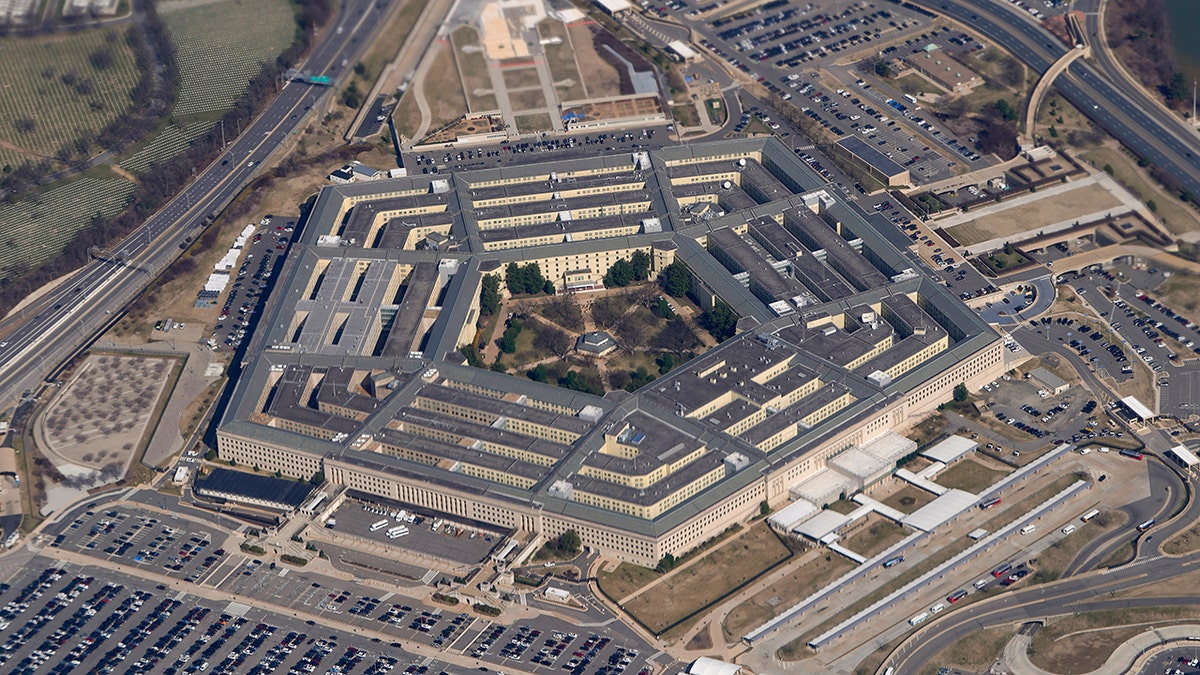
The Pentagon is seen from Air Force One as it flies over Washington, March 2, 2022. (AP Photo/Patrick Semansky)
It's my view that our military and intelligence lacks such understanding. Instead, the Pentagon relies on a one-size-fits-all approach, erroneously believing that superior weapons, advanced technology and masterful tactics will prevail in any war over any opposing force. Nowhere was this misguided belief more vividly disproven than in the U.S. failure in Afghanistan.
RUSSIA, CHINA, IRAN, NORTH KOREA RATCHETING UP THREATS AGAINST US. WHAT WE NEED TO KNOW
In December 2019, the so-called Afghanistan Papers, a trove of confidential government documents containing two thousand pages of impressions by four hundred direct participants in the war, ranging from generals to diplomats, revealed stunning facts. The Pentagon did not have the faintest idea about Afghanistan before invading it 2001 -- the culture, mindset, and warfighting style of its adversary. And that is the simple reason for Washington’s abysmal performance in Afghanistan. "We were devoid of a fundamental understanding of Afghanistan—we didn’t know what we were doing," Douglas Lute, a three-star Army general who served as the White House’s Afghan war czar during the Bush and Obama administrations, told government interviewers in 2015, "What are we trying to do here? We didn’t have the foggiest notion of what we were undertaking."
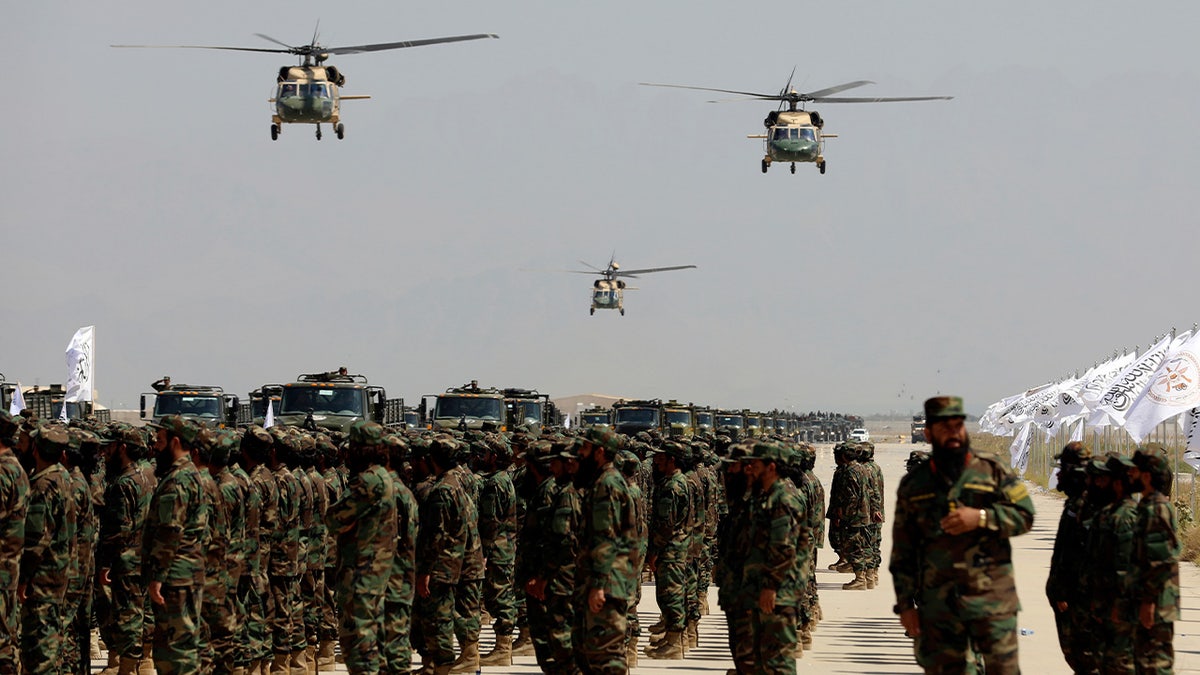
UH-60 Black Hawk helicopters fly during a military parade to mark the third anniversary of the withdrawal of U.S.-led troops from Afghanistan, at Bagram Air Base in the Parwan Province of Afghanistan on Wednesday, Aug. 14, 2024. (AP Photo/Siddiqullah Alizai)
After 20 years, the result of this was more than 2 trillion dollars spent on the war, and 7,000 deaths of American and allied servicemen and women. The Biden administration withdrew our forces and the same murderous regime, the Taliban, is ruling the country. Except now, these barbarians have billions of dollars worth of our top secret military hardware.
Close gaps and minimize vulnerabilities
Because our military is the best in the world in conventional warfare, no foreign power would dare challenge it in a head-to-head kinetic fight. Instead, our adversaries have developed asymmetric strategies to win a war against our military. These strategies seek to exploit vulnerabilities, such as over-reliance on technology. Indeed, we are dependent on satellites and access to the internet for every aspect of war-fighting and in our civilian life. Satellites are used for global navigation, water management, power grid monitoring, weather forecasting, broadband access and telecommunications for applications ranging from banking to education to telemedicine, among other things.
CLICK HERE TO GET THE OPINION NEWSLETTER
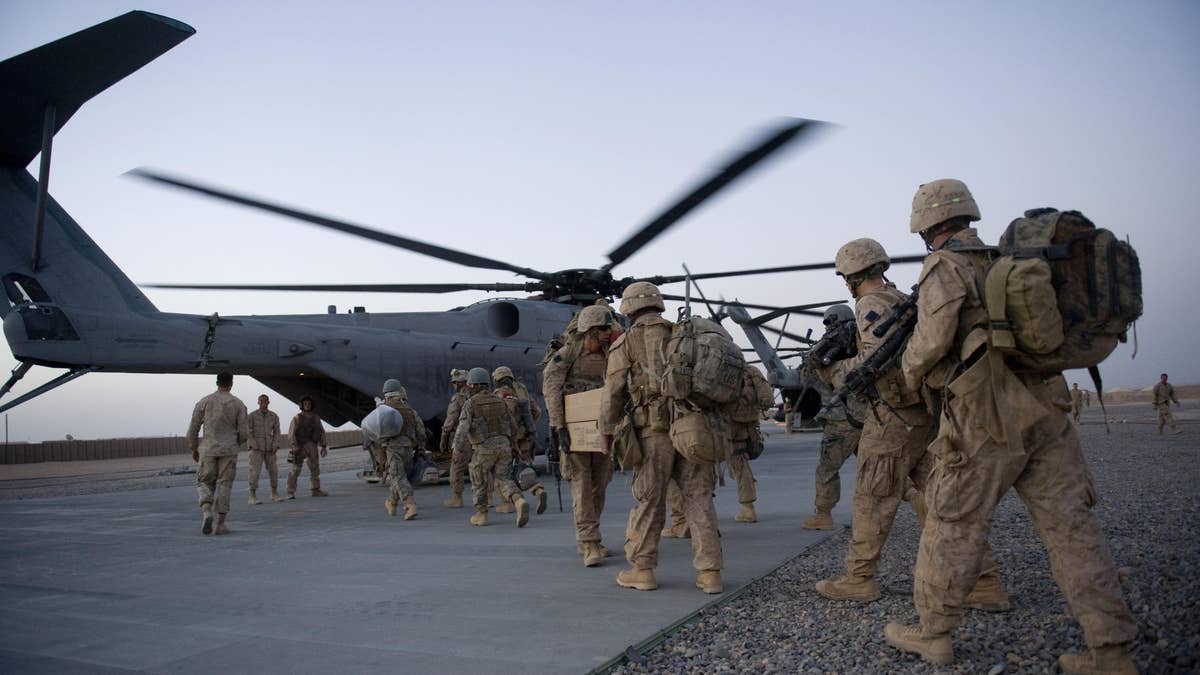
U.S. Marines from the 2nd Battalion, 8th Marine Regiment of the 2nd Marine Expeditionary Brigade walk towards helicopter transport as part of Operation Khanjar at Camp Dwyer in Helmand Province in Afghanistan on July 2, 2009. (Manpreet Romana/AFP via Getty Images)
Russia and China’s military strategies include cyber strikes and anti-satellite attacks targeting our critical infrastructure, government networks and military systems. The Pentagon has known about the possibility of attacks on U.S. space systems since January 2001, when a commission led by the then Defense Secretary-designate Donald Rumsfeld issued a report warning about a space Pearl Harbor.
Similarly, the Pentagon has been aware of gaps in our cybersecurity since 1999, when the Russians breached multiple U.S. government and military agencies, including weapons labs, and exfiltrated massive amounts of sensitive data.
Yet, our satellites remain unprotected. Even our weapons arsenal, including major advanced systems such as the Patriot missile system, are vulnerable to cyberattacks, according to a recent U.S. Government Accountability Office audit.
Consequently, winning against China or Russia, both of whom have plans to inflict a Cyber Armageddon or a Space Pearl Harbor on our homeland, if we deploy forces into the theater to defend Taiwan or a former Soviet nation like Ukraine, would be highly problematic.
Have a war plan on the books and a clear definition of victory
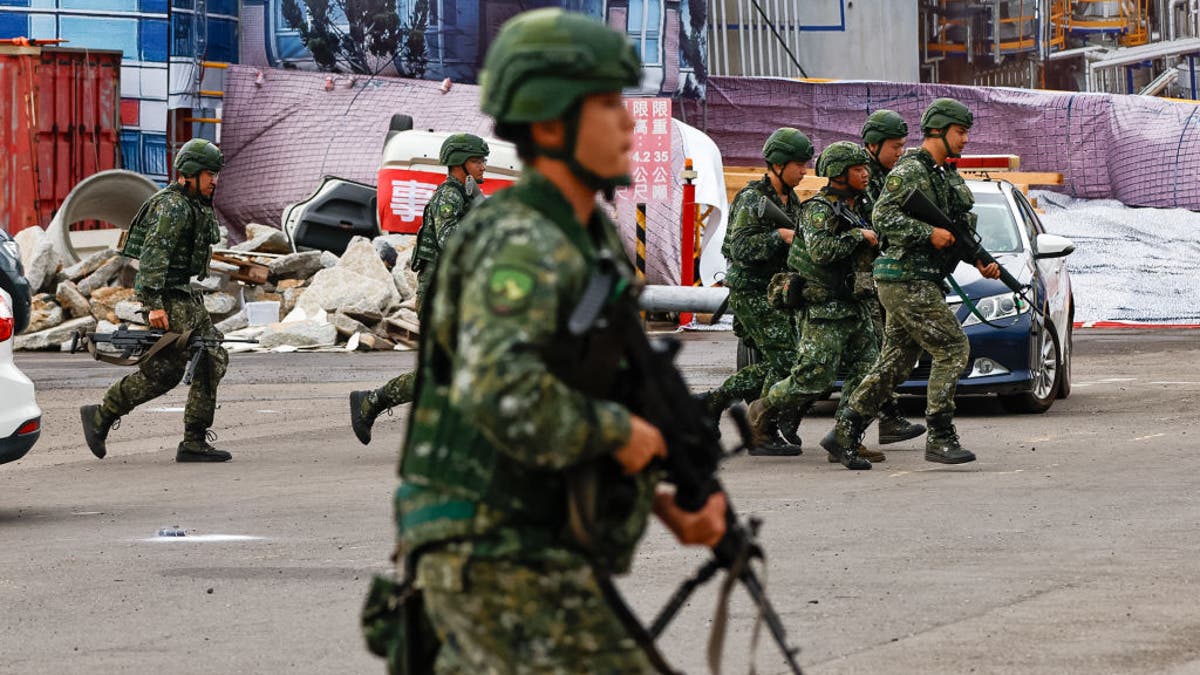
Taiwanese soldiers are deployed during a war and disaster drill as part of the annual Wan-An Air Raid Drill at a seaport in New Taipei, Taiwan, on July 23, 2024. The drill, which coincides with the annual Han Kuang Exercise, is joined by nearly 2,000 individuals from government agencies including the military, fire fighting and rescue services. It is held to simulate emergency responses to huge disasters and attacks by China, as Beijing has increased its military presence in the Taiwan Strait. (Photo by Daniel Ceng/Anadolu via Getty Images)
"No plan survives contact with the enemy" is one of the most misquoted military wisdoms, which belongs to Prussian Chief of General Staff Helmut von Moltke the Elder. He is known for serving as the architect of Prussian military supremacy in mid-19th century Europe.
What von Moltke actually said was far more nuanced. "No plan of operations extends with certainty beyond the first encounter with the enemy's main strength." A diligent and skillful planner, he stressed the importance of having an adaptable plan, which can be modified in rapidly-changing conditions. The proper plan, in his view, must include multiple options, factoring in various possible outcomes. And that can only be achieved through thorough preparation.
Regretfully, I don't believe such preparation exists in the Defense Department. In 2001, prior to the invasion of Afghanistan, the Pentagon had no pre-existing plan. Operation Enduring Freedom, seeking to destroy al Qaeda and remove the Taliban from power, was therefore, based on reused elements of the CIA’s previous contingency plans for collaboration with the Northern Alliance against the Taliban and some options hastily prepared by the U.S. military, including the Joint Special Operations Command.
CLICK HERE TO GET THE FOX NEWS APP
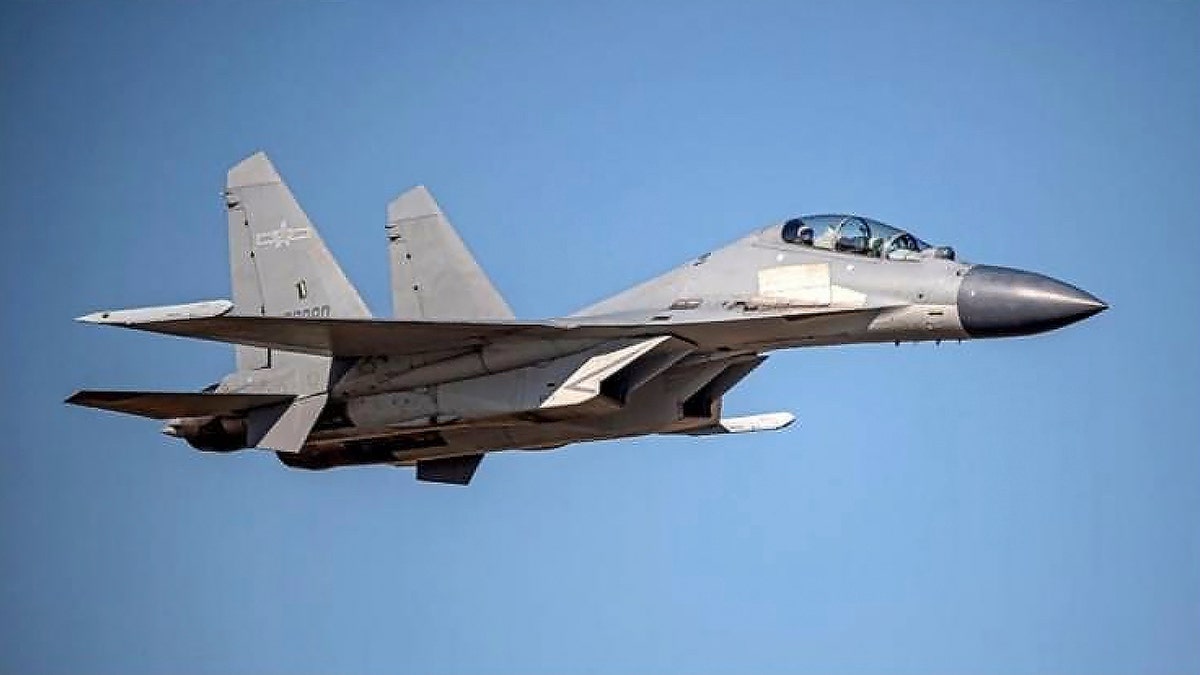
A Chinese PLA J-16 fighter jet flies in an undisclosed location. China’s military sent 71 planes, including J16 fighter jets and seven ships toward Taiwan in a 24-hour display of force directed at the island, Taiwan’s defense ministry said Monday, Dec. 26, 2022. (Taiwan Ministry of Defense via AP)
The Pentagon’s lack of preparation and culturally ignorant approach to war has resulted in the failure to anticipate how the insurgents in Afghanistan (and subsequently in Iraq) would adapt, fight and stymie the world’s most sophisticated and technologically advanced military. The insurgents’ employment of improvised explosive devices (IEDs) enabled them, the weaker side, to gain advantage over U.S. forces. IEDs - which were responsible for 60% of all American fatalities and half of American casualties in Afghanistan - mitigated U.S. advantages in resources, technology, and ground combat. These homemade gadgets mangled our military hardware and maimed our service members.
To defeat even low-tech adversaries, U.S. planners must learn to out-improvise them, rather than count on the technological crutch of advanced weaponry. Outsmarting your opponent requires doing your homework on him prior to deploying onto the battlefield.
Defining ahead of time what victory looks like will help avoid defaulting to nation-building, senseless fighting and loss of U.S. lives for twenty years in a country like Afghanistan. It is called "the graveyard of empires" for a reason.






















